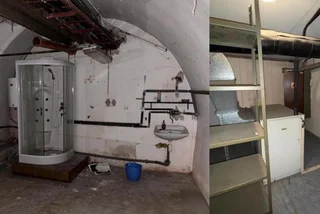“What is the standard deposit amount in Czechia?” “When should I get my deposit back?”, and “Do I need to transfer utility services in my name?” are questions that naturally abound for expat renters in Czechia.
The Association for Integration and Migration (SIMI) in Czechia has recently released its comprehensive Manual for Finding Rental Housing For Migrants. Available in English, Ukrainian, and Russian, the multi-part guide troubleshoots common terms as well as rental problems foreigners commonly experience.
PARTNER ARTICLE
Above all, SIMI’s main goal is to help foreigners as much as possible. “This handbook is based on our long-term experience of working with clients who lack awareness of local customs and legal norms, are in a situation where they are too vulnerable to exercise their rights, or have been exposed to multiple forms of discrimination.”
A landlord’s responsibilities and power
A common gray area for expat renters in Czechia is defining what exactly a landlord is legally required to do—and what tenants should take care of themselves. You might, for example, be surprised to find out who should cover costs for small repairs (such as to floors, doors, and toilets).
You may wonder, for example, under which grounds you can legally terminate your lease before the contract’s expiry or the maximum amount that a landlord can raise your rent by every year (and how often).
The guide also highlights a landlord’s responsibilities in breaking down and showing tenants the costs and payments for services and utilities used—crucial to protecting against overpayment.
It also advises when to establish a contract with a utility supplier directly (having energy bills in your name) or find a room that includes monthly utility bills in total rental payments.
"We have encountered situations, for instance, when migrants were discriminated against in deposit payments," SIMI says, noting that landlords cannot charge more than three months’ worth of rent for deposits and that the deposit should be returned by law on the day the lease terminates.
The handbook explicitly and clearly tells renters what can and should go into a Czech housing contract—and warns you against any illegal or underhand clauses that landlords may use.
The types of housing and proofs of accommodation
Did you know the each type of rental slightly affects how to acquire your proof of accommodation?
Crucially for foreigners, the handbook details the types of accommodation proof required by the Czech Interior Ministry when applying for a residence permit or if you are a third-country national changing your address.
Rental types include rent or lease (nájem), subletting (podnájem), house sharing (spolubydlení), or through other means, like a dormitory for students.
It includes practical advice on what to do once you’ve found a potential room, including red flags for scams, tips on avoiding fraudulent listings, and guidance on fees when using a realtor. Key dos and don’ts include never transferring money before signing a contract and always viewing a room in person.
Price map
If you encounter confusing Czech terms when looking for rooms, SIMI’s glossary aims to explain them. Using legal bases, it explains what normal “wear and tear” actually means in Czechia, the different types of apartment layouts, and what a real estate cadastre is.
The handbook also devotes an entire section to useful links to find extra help and resources. Possibly the most useful tool, however, is an interactive rental price map.
With Czechia’s rental prices higher than they have ever been—and expected to grow by up to 10 percent in 2025—tenants are in a tough spot. Recent research found that one rental ad in Prague garnered over 100 interested responses—which means that potential tenants in the country need all the help and insight they can get when searching for a home, especially if they’re foreign.












 Reading time: 3 minutes
Reading time: 3 minutes 




















